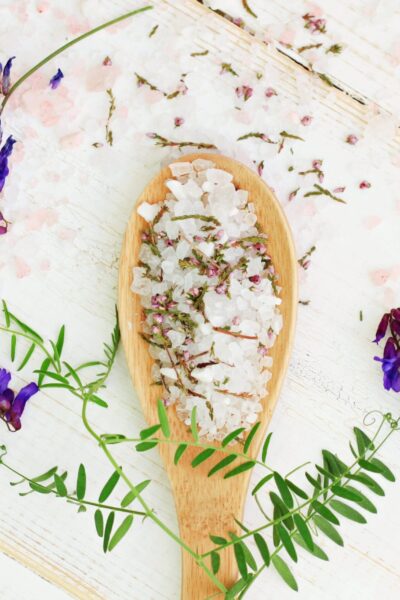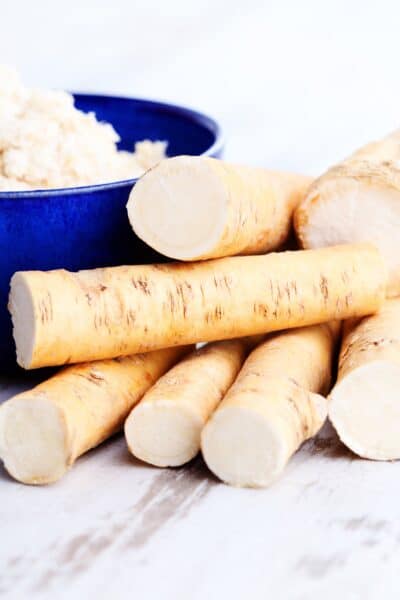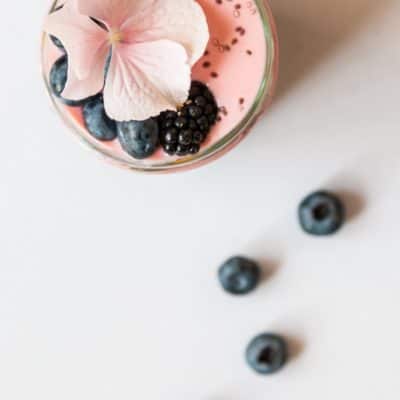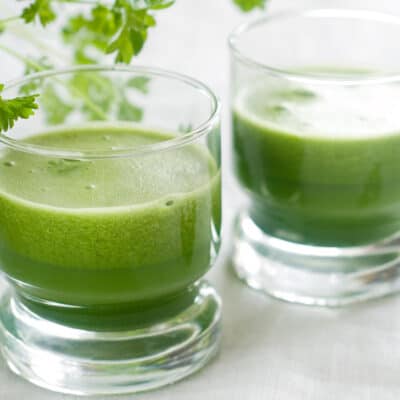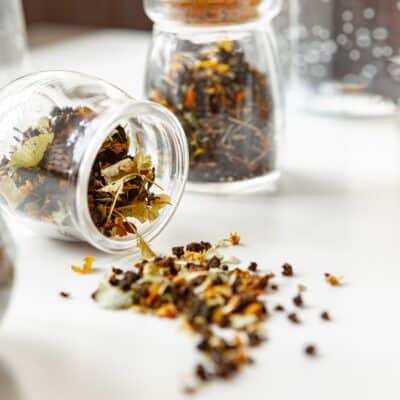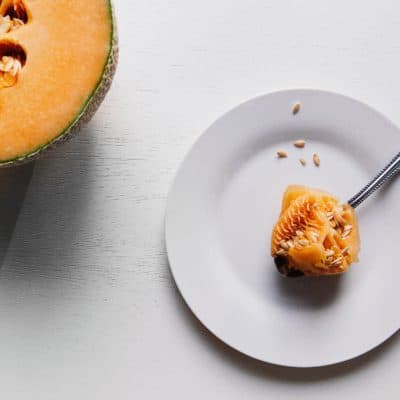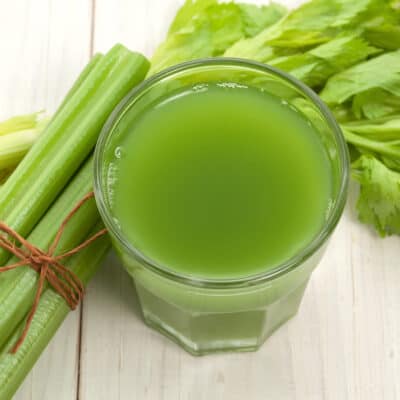Do you know 4 men in your life?
According to the CDC, every 40 seconds someone in the U.S. has a heart attack. It’s the leading cause of death for men, and a serious public health concern – so much of one that it has garnered a lot of attention in cardiovascular research and in the medical community. The risk is higher for those who smoke, have high blood pressure, and have high LDL cholesterol – and about half of Americans have at least one of these three risk factors. In fact, a 2019 study says nearly half (48%) of adult Americans have heart disease.
The $200 billion the U.S. spends each year treating heart disease doesn’t seem to be able to prevent it. Since cardiovascular disease is the leading cause of death for men, what can men do to take their health into their own hands? Let’s dig in.
Understand The Cause
Many people understand that diet is related to heart health. But why is it that some people who eat healthy still get high blood pressure, high cholesterol, and heart disease?
The true cause behind heart disease is derived from a liver problem. Many of you have heard me talk about the importance of our liver before – and this goes to further make that point. So many of us are walking around with low-functioning livers. Normally a highly intelligent, adaptive, hard-working organ, your liver performs many vital functions in the body, including filtering the blood so the heart can get clean, healthy blood to pump throughout the body. However, a poor diet, chronic stress, environmental toxins, viruses, heavy metals, a family history of all of these things, and more can burden your liver and make it sluggish or stagnant.
An overburdened liver can’t perform all of its functions well, so it picks the ones that will keep you the most alive. This often means the liver can’t filter blood properly – when the liver is gluey, fatty, and sticky, the blood becomes the same way. Blood that is still full of toxic debris, fats, old hormones, etc. then gets sent to the heart muscle. The heart has to work harder to pump this thick, viscous blood through your veins (imagine trying to suck a thick smoothie through a straw). The blood is supposed to be supplying nutrients to the heart muscle and to the rest of the body – but it can’t do this job well when it’s full of debris.
Your heart is a muscle. Those who focus on fitness understand that blood flow is very important to build muscle. If the blood is not flowing well, there’s not much chance of that happening. Also, take a look at the quality of the blood being pumped through the heart muscle every second – is it clean, nutrient-rich blood that will help the heart’s functionality?
Stress is also a major contributor to heart disease. Stress makes the adrenal glands pump adrenaline through the body – which is helpful when you’re being chased by a tiger, but not helpful when you can’t find your keys and you’re late to an important meeting. What’s the harm? Excess adrenaline pickles your liver, causing it to age quickly. This instigates and catapults a fatty and sluggish liver, contributing to heart disease.
The good news is, research shows cardiovascular disease is preventable and reversible with diet and lifestyle changes. Eating the right foods, not eating certain foods, and supplying the body with exactly what it needs is simple, but not easy. It may be easier to take the pill the doctor prescribes, but it’s certainly not healing the cause – it’s merely managing the symptoms of heart disease. And it definitely won’t make you live longer. So how can you heal and reverse this disease from the inside out?
Avoid These 3 Foods
It’s no secret that diet plays a major role in heart disease. If you want to prevent or reverse heart disease, here are the top 3 foods to minimize or omit from your diet completely:
EGGS
Although eggs have been dubbed a “healthy protein,” research shows that eating eggs significantly increases the risk of heart disease and all-cause mortality – that is, dying from any cause. The important piece from this 2019 study is the dose-response pattern, meaning the more eggs consumed, the higher the risk. Eggs also cause inflammation, increasing the risk for developing severe disease. Inflammation plays a key role in autoimmune disease, arthritis, heart disease, and so many other chronic conditions. If you’re thinking, “At least I don’t smoke!”, don’t celebrate quite yet. This 2012 study showed that consuming eggs is almost as bad for your heart as smoking. Even the National Cholesterol Education Program advises against consuming eggs for those at risk for cardiovascular disease.
Eggs also feed viruses and foreign living pathogens in the body. One of the liver’s jobs is to withhold such bacteria from the rest of the body. If the liver is not functioning well, those trouble-causing viruses are still rampant in the body – and have a feeding frenzy when eggs are consumed. Eggs contain high amounts of rapid growth hormones. Consider the life cycle of a chicken: it grows very quickly from baby chick to adult chicken within 5 months. Those hormones inside the chicken egg transfer to your body when eaten, and cause rapid growth of bad bacteria in the body (think: pouring gasoline on a fire of health issues).
Why isn’t this information more well known? There’s so much biased health misinformation out there to sift through. Although multiple studies point to eggs as causing inflammation in the body (a few examples 1, 2, and 3), there are others such as this one that say consuming 3 eggs daily helps inflammation. When in doubt, follow the funding: that study was funded by the Egg Nutrition Center.
I recommend minimizing or omitting eggs completely from your diet if you have any health issues, but particularly for those at risk for heart disease or wanting to reverse or prevent it.
For a more extensive look at eggs, check out this article.
ANIMAL PROTEIN
What is animal protein? Pork, beef, chicken, fish, salami, bacon, turkey, etc. Although we have been conditioned to believe that animal protein is a necessary part of a healthy diet, there is a large body of research that suggests otherwise. A 2018 study showed eating red meat increased cardiovascular disease by 60% whereas consuming plant protein reduced it by 40%. Essentially, we are seeing more and more in research that more animal protein means a higher risk of heart failure – especially in middle-aged men.
Why is meat so bad for your health? Cholesterol takes up a lot of that conversation, but my suggestion is to look deeper. Animal products tend to be high in fat, which is extremely burdensome for your liver. A high fat diet leads to increased risk for coronary heart disease. Whether it’s “good fat” or “bad fat,” all fats burden the liver, making it difficult to filter the blood and assist the heart.
Worried about protein in your diet without meat? Have no fear – plants contain plenty of protein that is easily absorbed and utilized by your body, and comes without lots of fat. Keep in mind that studies show red and white meat are equally bad for your cholesterol, and that plant proteins are the healthiest! In fact, research shows trading animal protein for plant protein not only lowers your risk for heart disease, it can reverse it and help you live longer, too!
For a more extensive look at protein, check out this article.
DAIRY
For the heart muscle to pump smoothly and efficiently, it needs to have elasticity. Dairy acts like Elmer’s glue in the body, making the muscle, blood, and veins sticky and have difficulty flowing. Worried about having strong bones? It turns out that dairy has been shown to have no benefit for strengthening bones and reducing fracture risk. (You’re better off getting more minerals and trace minerals to build bone strength!) Dairy also creates inflammation, mucus, and the replication of viruses, creating more and more of a workload for your poor liver. Even one cup of coffee with a little creamer in it adds up. If your liver is already congested and can’t filter out these trouble-causing substances, more problems can quickly manifest. As we’ve learned – if the liver is in poor condition, so is our health.
Add In These 3 Foods
We’ve all heard, “Eat your fruits and veggies!” but for those at risk for heart disease or wanting to prevent or reverse it, this could be more true. In fact, inadequate fruit and vegetable consumption may account for millions of deaths from heart disease and strokes each year. This 2019 study found that 1 in 7 cardiovascular deaths could be attributed to not eating enough fruit, and 1 in 12 could be attributed to not eating enough vegetables. So which ones are the best for your heart?
CRIMSON-COLORED PLANT FOODS
Plant foods that have a rich, red color contain a phytochemical compound and certain nutrients that fuel the blood and the heart. These foods are an absolute must to nourish and strengthen the heart and clean the blood. They can include: beets, organic berries, pomegranates, cherries, dark-colored red or purple grapes, cranberries, currants, tomatoes, red apples, pink dragon fruit, etc. These gifts from nature are also loaded with antioxidants, which help restore the blood vessels, destroy free radicals that cause disease, and can even reduce the risk for a second heart attack or stroke. A diet rich in antioxidants from plant-based foods is shown to prevent diseases such as cardiovascular disease, cancer, Alzheimer’s, and macular degeneration.
An apple a day may keep the doctor away, but I challenge you to three red-skinned apples a day! The compounds in the red skin help cleanse the liver, aid digestion, encourage weight loss, detoxify the brain of MSG, and remove heavy metals from the body. This fruit can also play an important role in reducing inflammation of all kinds in the body.
You all know I love cranberries for their amazing health benefits! Here’s more resources on cranberries, including recipes:
- Why You Should Eat Cranberries Every Day
- 10 Blissful Recipes to Make You Crush on Cranberries
- Cran-Nana Ice Cream
- Vegan Apple Cranberry Muffins
GREEN-COLORED PLANT FOODS
Get more greens! Wheatgrass, barley grass, alfalfa grass, leafy greens (romaine, spinach, arugula, butterleaf, red romaine, etc), asparagus, artichokes, parsley, cilantro, cucumbers, celery – the possibilities are countless! These foods are a powerhouse of vitamins, minerals, protein, and electrolytes to restore the body and create a healing environment within. Leafy greens contain high amounts of a phytochemical called glucosinolates, which helps detox and purify the cells, tissues, and organs in the body.
I highly recommend having asparagus and/or brussel sprouts on the dinner table at least once a week! Asparagus is wonderful for your heart. It also nourishes and cleanses the liver and other organs such as the spleen, pancreas, and kidneys. Asparagus is also very high in absorbable B vitamins, silica, iron, zinc, molybdenum, chromium, phosphorus, magnesium, and selenium – all of which help soothe your adrenals when under stress. Asparagus also creates alkalinity in the body by flushing out unproductive acids. Asparagus can be eaten raw or steamed, and is a fantastic addition to soups, salads, stews, and other veggie dishes!
Looking for more green recipes? Here’s some ideas!
- 5+ Green Recipes to Brighten Up Your Life
- Fresh & Nourishing Green Lemonade Recipe
- Parsley Water: The Detox Drink
WHITE-COLORED PLANT FOODS
When food is white, we often assume it has no flavor. Don’t make the same mistake for its nutritional value! White-colored fruits and vegetables hold life-saving minerals. Bring lots of potatoes, jicama, radishes, cauliflower, blueberries (white on the inside), diakon (Japanese radish), burdock root, white carrots, rutabaga, parsnips, and more into your diet to help prevent or reverse heart disease! These foods are packed with minerals but also carry electrolytes to refuel the body, glycogen to nourish the brain and body, and hydration to flush out toxins.
Potatoes are a wonderful, nutrient-rich food that also contain an antioxidant called quercetin that protects the heart against disease. They are wonderful for protecting the heart and can reduce the risk of heart attack or stroke. Due to their high fiber content, they also lower cholesterol and stabilize blood sugar. Potatoes contain a variety of vitamins, such as A, C, and B-complex and minerals such as manganese, iron, magnesium, copper, and potassium. Enjoy potatoes raw, juiced or steamed, as that is the healthiest form that will ensure that they retain most of their vitamins and minerals and remain a strongly alkaline, healing food. Definitely pass on the cheese, bacon bits, butter, and sour cream toppings!
Take These 3 Supplements
High-quality supplements in the correct form can help provide the body with essential nutrients it needs to heal. Nature has given us the amazing gift of rich nutrients in our food – however, we have been regularly depleted of many of these nutrients due to poor diet, soil quality, environment, and other factors. Your body is in desperate need for many of these nutrients, and supplements derived from the most high-quality herbs and plants can make all the difference. The supplements I recommend below are a jumping-off point for those who have heart disease or at risk, and are by no means an exhaustive list. Please consult with a health professional before taking these supplements.
HAWTHORN BERRY from Gaia Herbs
The little berry from the hawthorn shrub packs some powerful benefits for your heart. For centuries, this fruit has earned a reputation for strengthening the cardiovascular system. A recent study shows hawthorn berry benefits include increased stamina, reduced shortness of breath, increased energy and diminished fatigue. Furthermore, this powerful berry stabilizes blood pressure, reduces chest pains (angina), eases hypertension, and has excellent antioxidant and anti-inflammatory properties. It can also aid digestion, reduce anxiety, and expand coronary blood vessels, thus increasing energy.
The brand of hawthorn berry extract I recommend is from Gaia Herbs. You can find it in liquid or capsule form, or drink it as a tea.
COQ10 from Pure Encapsulation
Co-enzyme Q10 provides energy to the cells. It is an amazing antioxidant, and extremely beneficial for those who have had heart failure, high blood pressure, or any condition to do with the heart. When your body does not have enough co-enzyme Q10, it ages very quickly – including your liver. This supplement regenerates the liver so it can improve its functioning – thus improving the functionality of your heart.
The brand I recommend is Pure Encapsulation. Begin with the suggested dosage.
SILICA from Eidon Minerals
Silica is a trace mineral found in connective tissues, skin, blood vessels, cartilage, teeth, tendons, and hair. Silica is necessary for the health of blood vessel walls (the arch of aorta has really high concentrations of silica). This trace mineral can remove waste material, toxins and heavy metals from the body as well as prevent illness and infection. Silica is known as an anti-aging mineral. As we age, our silica levels become very low. Deficiency in silica can contribute to hardening of the arteries.
The brand I recommend is Eidon Minerals. Begin with the suggested dosage.
The Greatest Gift
Joyce Meyer said, “I believe that the greatest gift you can give your family and the world is a healthy you.” As the incidence of heart disease – especially in men – climbs higher and higher each year, consider bringing your awareness to healthier choices for your liver, your heart, and your health. Strong and vibrant health will only empower your gifts and your potential for this world. Here’s to a healthy heart and a long life well-lived!
Ignite the healer within,
Amber Bodily
P.S. If you’re looking for a plan to transition to a plant-based diet, or just to try it for a month, check out my online course Go Vegan For 30 Days to find 100+ recipes and meal plans, plus my best tips and tricks for plant-based eating.

